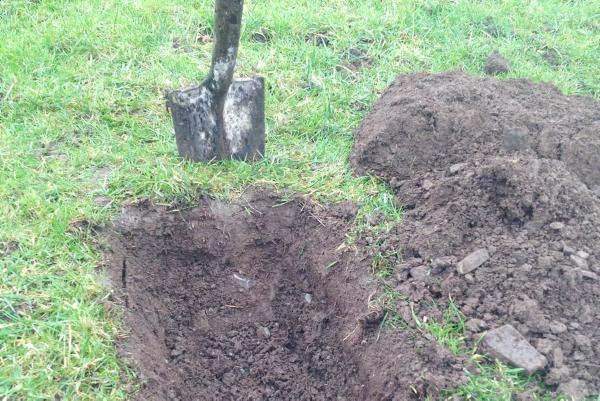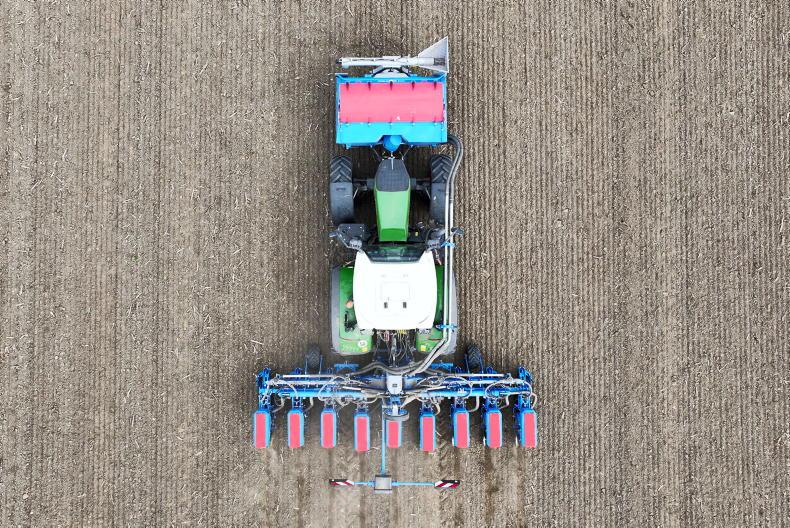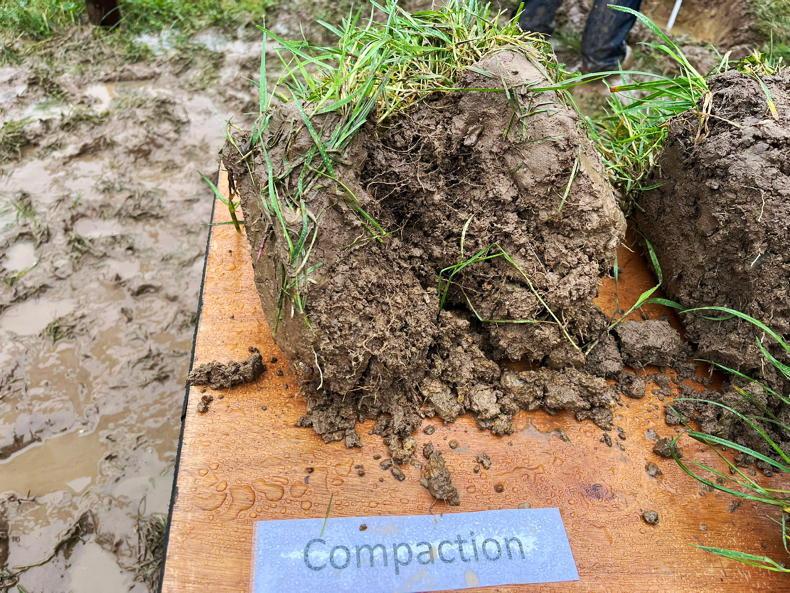Last Friday evening I attended a very interesting talk on soils. It really showed that with soil, back to basics is best. The physical, chemical and biological details of soils were explored. All topics covered could be applied to any size of farm or enterprise. It demonstrated that if you do the simple things correctly, all the rest will follow.
The physical covered compaction. Compaction affects every farm in the country. Firstly the person giving the talk suggested establishing what type of compaction was present, i.e. livestock compaction is 3-4 inches or machinery compaction which can be anything from 6 inches to 18 inches. Digging some random test holes established what problems were present and what type of aeration tool needs to be used.
He stressed the importance of only carrying out any aeration when conditions were perfect. This meant that ground conditions were extremely dry and a shattering effect was caused by the aerator. In many instances ground conditions were too wet and additional compaction was caused by the operation.
Also, while digging the test holes, an examination of the worm population was crucial. These are natural aerators. An astonishing figure was presented that there should be 26 worms per foot cubed or 165,000 per acre.
The chemical covered the basics: lime requirement, phosphorus and potassium. On the phosphorus requirement, an interesting statistic suggested that there could be up to 5,000 kg of phosphorus per hectare that is locked up due to chemical ratios not being correct. For example, the calcium and magnesium ratio and potassium and sodium ratio being out of sync. This is something that we as farmers should examine due to the limitations on phosphorus allowances and the environmental risk they pose.
On the biological front, a living soil is essential. We should be utilising all our natural resources to maximum. Treating slurry with an enhancer could increase the nitrogen capture by up to 100% and also allow it to be composted and become more “soil friendly”. Adding natural composts to the soil like farmyard manure could help increase worm populations, thus improving soil drainage and increasing fungi and bacteria. All these small changes can allow our largest natural resource to become more productive.











SHARING OPTIONS